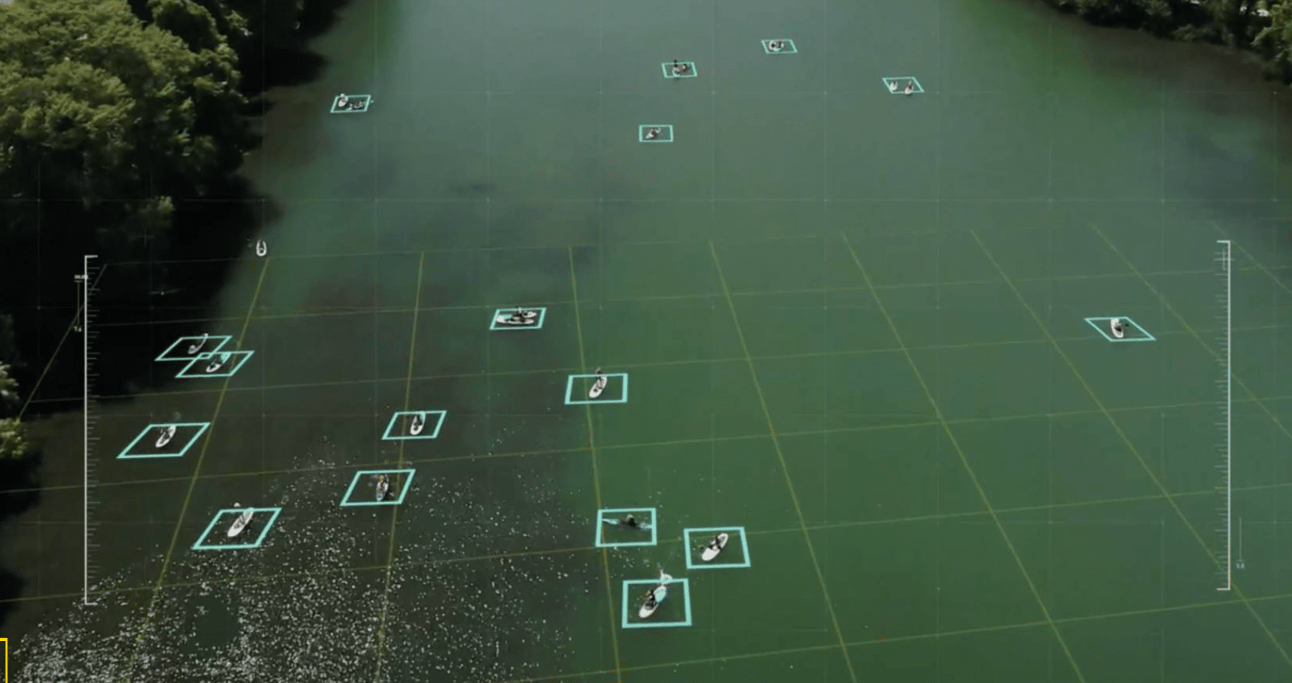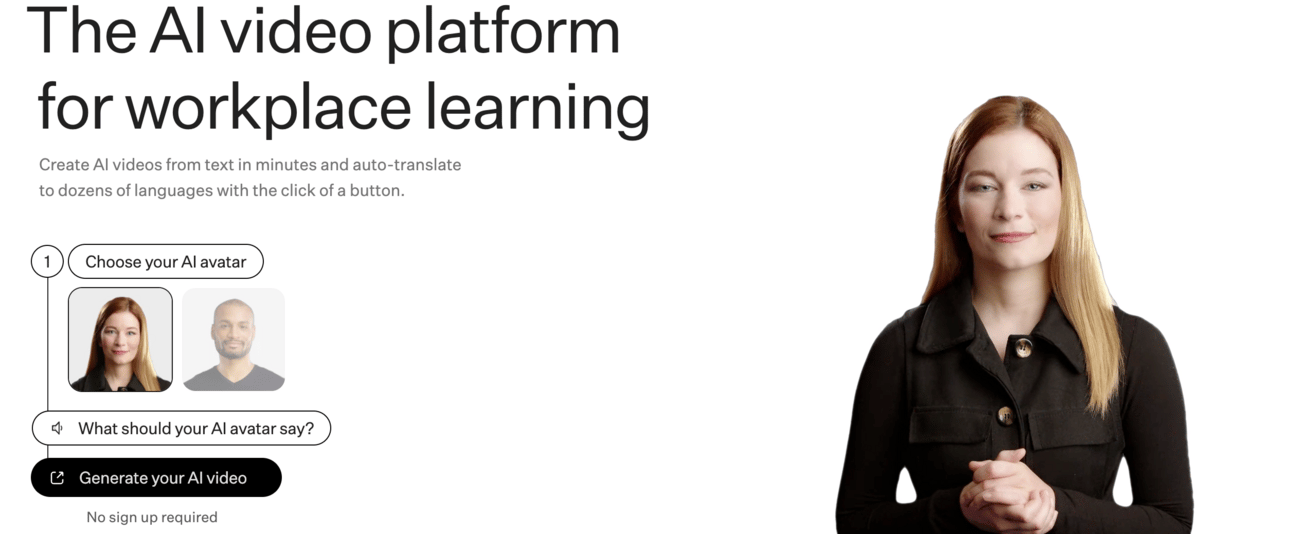
Welcome, AI Enthusiasts.
Synthetaic, known for its AI-driven analysis of satellite imagery, raised $15 million in a Series B round, attracting investors like Lupa Systems and TitletownTech.
Most employees tend to skim through or multitask during traditional corporate training videos, posing a challenge for companies looking to engage their workforce effectively.
In today’s issue:
🤖 Synthetaic Asserts Synthetic Data Equals Real Data for AI Applications
🦾 Colossyan Revolutionizes Corporate Training with GenAI-Generated Videos
🛠️ 3 New AI tools
💻 Custom prompts ChatGPT and DALL-E 3
🤖 3 Quick AI updates
Read time: 5 minutes.
LATEST HIGHLIGHTS

Image source: Synthetaic
To recap: Synthetaic, known for its AI-driven analysis of satellite imagery, raised $15 million in a Series B round, attracting investors like Lupa Systems and TitletownTech. Their platform, RAIC, automates data analysis without requiring human annotations, enabling tasks like spotting the Chinese spy balloon in American airspace using only sketches and satellite images. Despite concerns about synthetic data biases, Synthetaic's customers, including the U.S. Air Force and The Nature Conservancy, have embraced its technology for various applications, from object detection to environmental conservation. CEO Corey Jaskolski foresees broader adoption across industries, emphasizing RAIC's potential to drive innovation and competitive advantage by overcoming data limitations in AI adoption.
The details:
1. Synthetaic's Series B round, led by Lupa Systems and TitletownTech, raised $15 million, bringing the total raised by the company to $32.5 million.
2. Their platform, RAIC (Rapid Automatic Image Categorization), automates data analysis without requiring human annotations, allowing tasks such as identifying the Chinese spy balloon using sketches and satellite images.
3. Despite concerns about biases in synthetic data, Synthetaic's technology has been embraced by customers like the U.S. Air Force and The Nature Conservancy for various applications, including object detection and environmental conservation efforts.
Here is the key takeaway: The key takeaway is that Synthetaic, a company specializing in synthetic data and AI model training, has secured $15 million in Series B funding and is rapidly advancing its RAIC platform, which automates data analysis without the need for human annotations. Despite concerns about biases in synthetic data, Synthetaic's technology is gaining traction among various industries, including defense and environmental conservation, for its ability to handle complex data sets and accelerate AI development.
COLOSSYAN
🦾 Colossyan Revolutionizes Corporate Training with GenAI-Generated Videos

Image source: Colossyan
In Summary: Most employees tend to skim through or multitask during traditional corporate training videos, posing a challenge for companies looking to engage their workforce effectively. Colossyan, a startup founded by Dominik Mate Kovacs, addresses this issue by leveraging generative AI to create more engaging workplace learning videos. The platform allows users to input a script and select from a range of virtual avatars, which then animate and present the content against various backdrops. While Colossyan faces competition in the GenAI video space, its focus on interactivity and engagement has attracted notable customers like Novartis, Porsche, and Vodafone. The startup recently secured $22 million in funding to expand its team and develop new features, aiming to provide scalable and cost-efficient training solutions for businesses.
Key points:
1. Employee Engagement Challenge: Traditional corporate training videos often fail to engage employees effectively, with many admitting to skimming through or multitasking during these sessions, according to a poll by Kaltura.
2. Colossyan's Approach: Colossyan, founded by Dominik Mate Kovacs in 2020, aims to address the engagement challenge by using generative AI to create more captivating workplace learning videos. The platform allows users to input scripts and choose from virtual avatars to present the content against various backgrounds.
3. Platform Features: Colossyan's platform offers features like integrations with learning management systems, a "conversation mode" for dialogue between avatars, and a text-to-speech engine supporting over 70 languages. However, some users find the avatars slightly stiff and the TTS engine robotic compared to other GenAI tools.
4. Customer Traction and Funding: Despite competition in the GenAI video space, Colossyan has attracted notable customers such as Novartis, Porsche, Vodafone, HPE, and Paramount. The startup recently raised $22 million in funding led by Lakestar, with plans to triple its team across offices in New York, London, and Budapest and develop new features like branching videos and knowledge checks.
Our thoughts: We find Colossyan's approach intriguing in tackling the challenge of employee engagement during corporate training sessions. Leveraging generative AI to create interactive and customizable learning videos has the potential to revolutionize traditional training methods. However, while the platform offers promising features such as integrations with learning management systems and multilingual text-to-speech capabilities, there may be room for improvement in terms of avatar realism and speech synthesis to enhance user experience further. Additionally, Colossyan's ability to attract prominent customers and secure substantial funding indicates growing interest and potential in the market for AI-driven training solutions. Overall, it's an exciting development that could shape the future of workplace learning and development.
TRENDING TECHS
𝍑 Spiritme- Digitize yourself and delegate pitching to your avatar
🧾 Moveo-Personalized AI virtual agents trained on your data
🤖 Hypertype- Write emails 10x faster using AI + your own information
AI DOJO
Advisor:
Prompt: Offer advice on effective communication in the workplace
DALL-E 3
Fashion creation:
Prompt: Innovate a piece of clothing, maybe a men's suit, for a fashion show.
QUICK BYTES
Tencent's release of DynamiCrafter, an open-source video generation model, highlights China's growing focus on generative video technology. Using diffusion methods, the model transforms text and images into short videos, with the latest version producing higher-resolution output. Competing with offerings from ByteDance, Baidu, and Alibaba, this signals a broader push within China's tech industry toward advancing AI-driven video synthesis, despite current limitations in creating full-length films.
Enterprise and startup leaders are grappling with the implications of artificial intelligence (AI), especially generative AI, which is reshaping business operations and posing complex governance challenges. Boards must prioritize AI risk management and oversight, yet many struggle to educate their members on AI-related issues. With the proliferation of AI use cases and associated risks, boards need to play a more active role in addressing AI-related concerns, including security breaches, biased outputs, and irresponsible deployment. The emergence of generative AI compounds these challenges, necessitating urgent action to develop strategies for AI risk mitigation. Five key steps are recommended for board members to navigate the evolving landscape of AI and prepare for its impact on business operations.
Meta plans to expand the labelling of AI-generated imagery on its platforms, including Facebook, Instagram, and Threads, to cover synthetic content produced by rival generative AI tools, provided these tools embed detectable indicators. This move aims to increase transparency around the presence of AI-generated content, particularly ahead of pivotal election periods globally. While Meta has been labelling images created with its own AI tool, this expansion will encompass content from other providers. The decision reflects the growing importance of managing AI-related risks, as these technologies increasingly influence online content. However, the effectiveness of such measures remains uncertain, given the challenges in detecting AI-generated videos and audio, as well as the prevalence of non-AI-related content manipulation. Additionally, Meta is exploring the use of generative AI tools, such as Large Language Models (LLMs), to support content moderation efforts, particularly during periods of heightened risk, such as elections. Despite these efforts, questions persist regarding the scalability and efficacy of AI-powered content moderation and the challenges posed by the asymmetry between the availability of human fact-checkers and the scale of disinformation threats fueled by AI technologies.
SPONSOR US
🦾 Get your product in front of AI enthusiasts
THAT’S A WRAP
